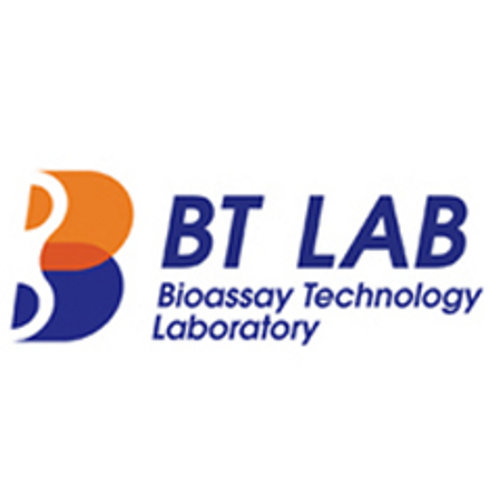Product Description
Human Calcipressin-1 (RCAN1) ELISA Kit | AE22626HU | Abebio
Species Reactivity: Human (Homo sapiens)
Abbreviation: RCAN1
Alternative Name: ADAPT78; CSP1; DSC1; DSCR1; MCIP1; RCN1; Down syndrome candidate region 1|Down syndrome critical region gene 1|calcipressin 1|calcium and oxidant-inducible mRNA|modulatory calcineurin-interacting pr
Application: ELISA
Range: 0.312-20 ng/mL
Sensitivity: 0.116 ng/mL
Intra-Assay: ≤5.1%
Inter-Assay: ≤9.8%
Recovery: 1, 01
Sample Type: Serum, Plasma, Other biological fluids
Detection Method: Sandwich
Analysis Method : Quantitive
Test Principale: This assay employs a two-site sandwich ELISA to quantitate RCAN1 in samples. An antibody specific for RCAN1 has been pre-coated onto a microplate. Standards and samples are pipetted into the wells and anyRCAN1 present is bound by the immobilized antibody. After removing any unbound substances, a biotin-conjugated antibody specific for RCAN1 is added to the wells. After washing, Streptavidin conjugated Horseradish Peroxidase (HRP) is added to the wells. Following a wash to remove any unbound avidin-enzyme reagent, a substrate solution is added to the wells and color develops in proportion to the amount of RCAN1 bound in the initial step. The color development is stopped and the intensity of the color is measured.
Product Overview: RCAN1 interacts with calcineurin A and inhibits calcineurin-dependent signaling pathways, possibly affecting central nervous system development. This gene is located in the minimal candidate region for the Down syndrome phenotype, and is overexpressed in the brain of Down syndrome fetuses. Chronic overexpression of this gene may lead to neurofibrillary tangles such as those associated with Alzheimer disease. The predicted 171-amino acid protein contains 2 proline-rich regions, a putative DNA-binding domain, and an acidic region. Northern blot analysis revealed that the 2.2-kb DSCR1 transcript is expressed at the highest levels in fetal brain and adult heart and at lower levels in various other tissues. An additional 2-kb mRNA was detected in fetal and adult liver.
Stability: The stability of ELISA kit is determined by the loss rate of activity. The loss rate of this kit is less than 5% within the expiration date under appropriate storage condition. The loss rate was determined by accelerated thermal degradation test. Keep the kit at 37°C for 4 and 7 days, and compare O.D.values of the kit kept at 37°C with that of at recommended temperature. (referring from China Biological Products Standard, which was calculated by the Arrhenius equation. For ELISA kit, 4 days storage at 37°C can be considered as 6 months at 2 - 8°C, which means 7 days at 37°C equaling 12 months at 2 - 8°C) .
 Euro
Euro
 USD
USD
 British Pound
British Pound
 NULL
NULL








